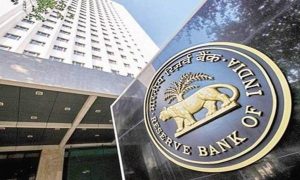Menopause is a natural biological process marking the end of a woman’s menstrual cycle, diagnosed at the end of 12-months without a menstrual period, often striking in your forties or fifties (generally between 48 to 53 years of age). It happens as a result of the natural decline in female sex hormone levels with age. The ovaries eventually cease to release eggs, restricting pregnancy or menstruation.
Overall, as menopause approaches, the body undergoes a few hormonal changes, many of which are tied to the body’s lack of eggs. Simultaneously, additional changes and tensions occurring in life at that time, contribute to the symptoms.
Although physical and mental symptoms of menopause, such as hot flushes, can interrupt sleep, sap energy, and harm emotional well-being, there are several effective treatments available, ranging from lifestyle changes to hormone drugs.
A few signs of nearing Menopause:
Because hormone levels can’t be tested at home, there are a few tell-tale indicators that you’re approaching menopause. Not every woman exhibits these symptoms, with each one exhibiting a unique combination of them.
- Irregular Periods
When the menstrual cycles appear to be all over the place, appearing to be shorter in length but are occasionally missing entirely. It’s tough to keep track of your menstruation with typical flow changes. It’s usual to have a gradual decrease in period flow, however, some women might have a stronger flow, indicating a common uterine problem.
The amount of change in flow is determined by your body and any other uterine abnormalities that may exist. If your periods are getting increasingly irregular, such as cycles lasting less than 21 days, bleeding for more than 10 days, or soaking through a pad or tampon in less than an hour, there could be more significant issues at play.
- Reduced Libido
Intimacy doesn’t appeal to you anymore. There is no desire; you’re not in the mood; you try, but it doesn’t appear to work or lift your spirits. Reduced libido, regardless of how you’re feeling, is another symptom. There could be multiple explanations for your lower libido, like a drop in estrogen and/or testosterone levels, relationship stress, increased work duties, children moving away, family issues, and even bad weather are all possible culprits.
- Weight gain
Consuming the same amount of food, if not more is leading to a steady yet uncontrolled weight gain around the waist, as estrogen levels drop, increasing the risks of heart disease significantly. Another contributing factor is the metabolism naturally slowing with age, necessitating lower calorie intake while also raising the intensity of physical activity.
- Increased UTIs
If there is an unexplained increased number of UTIs, menopause might be approaching, since it is a side effect of vaginal dryness caused by estrogen deficiency, lesser prevalent in the months leading up and more common once menopause has arrived. As a result of thinning of the vaginal skin, more E. coli could be pushed from the rectum/anus, causing it to live and multiply in the urethra, creating an infection as well as symptoms such as increased urine frequency, burning at the end of urination, etc.
- Night Sweats and Hot Flushes
Hot flushes and nocturnal sweats, defined as a sensation of heat rising from the centre, engulfing the entire body, causing scarlet flush and excessive sweat, are two of the most prevalent signs of menopause. They are experienced generally for between 12 to 18 months.
Although hormone fluctuations are the root cause, stress is a known contributor. Short term use of HRT ( hormone replacement therapy) may be an effective way (provided there are no contraindications), to minimize hot flushes and night sweats. Non-hormonal solutions are also available for those who are unable to utilize hormones or are afraid of the same.
- Brain Fog
Women who are approaching menopause often complain of being forgetful and unable to concentrate. Minor memory lapses, such as being unable to recollect a word or misplacing one’s car keys, can occur in both men and women after middle age. Stress is another factor that can play a role. If you’re concerned that you’re forgetting too much, talk to your doctor.
(Inputs by Dr Manisha Singh, Senior Consultant – Gynecologist & Reproductive Medicine, Bannerghatta Road, Bangalore)



































